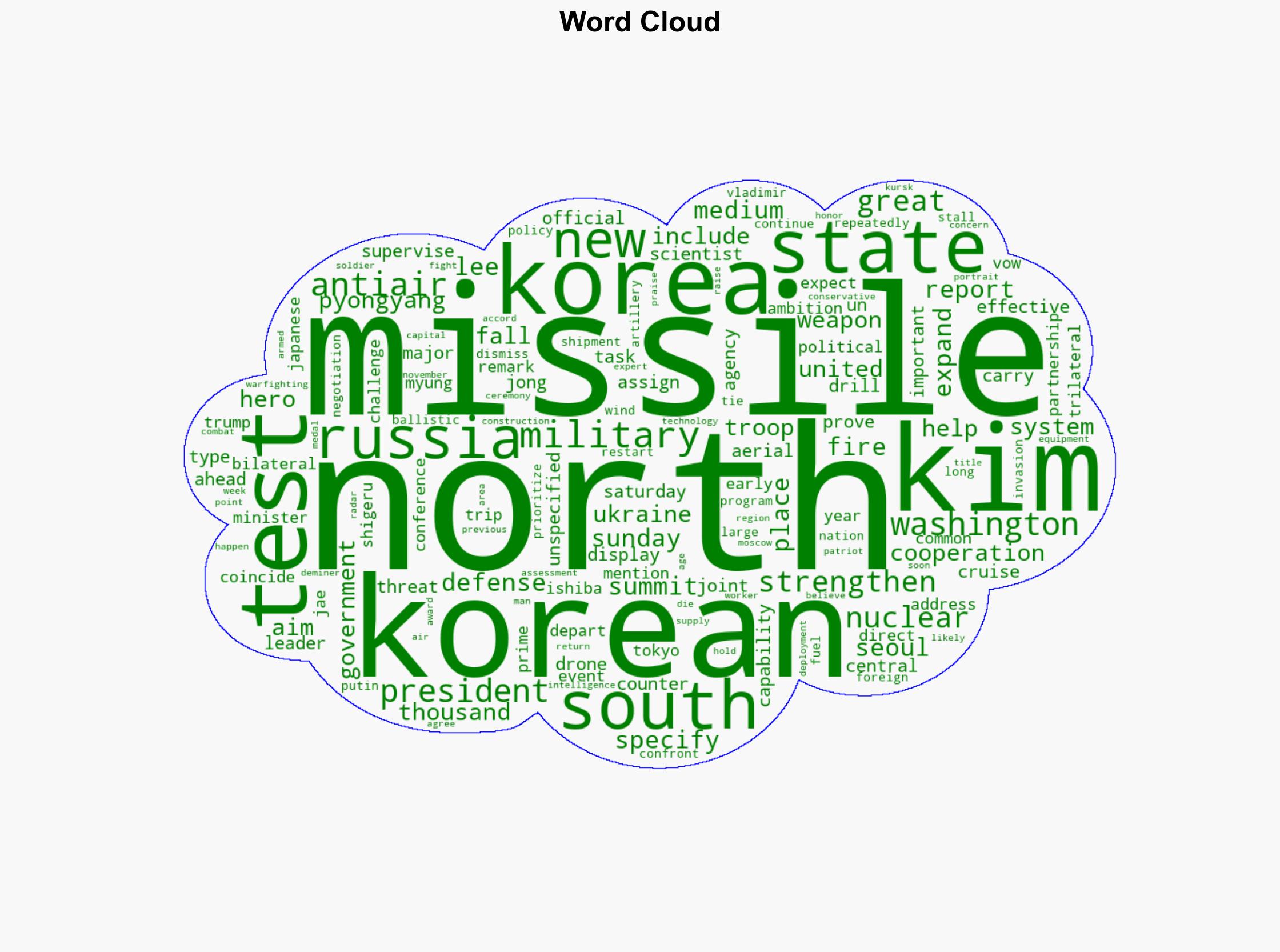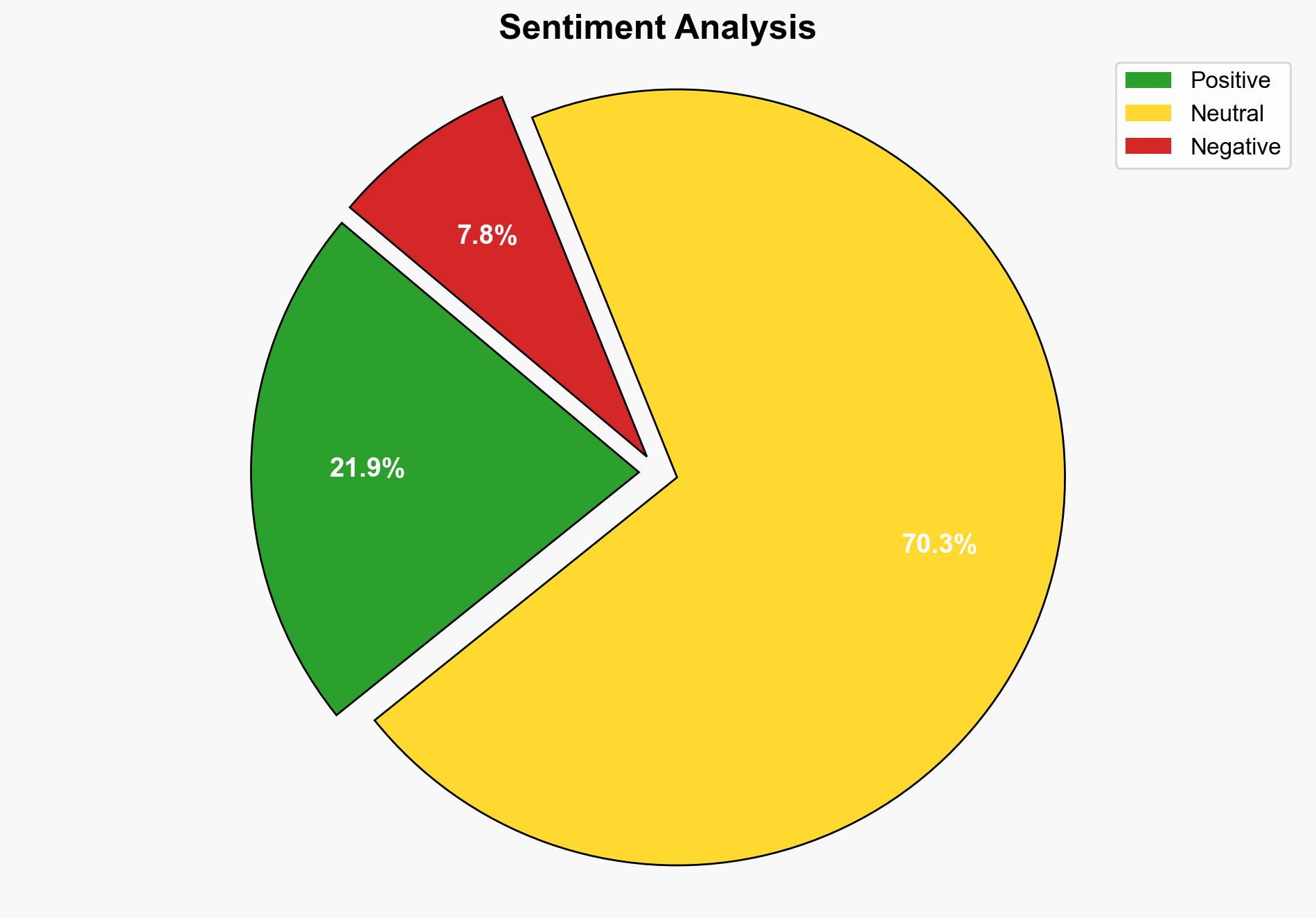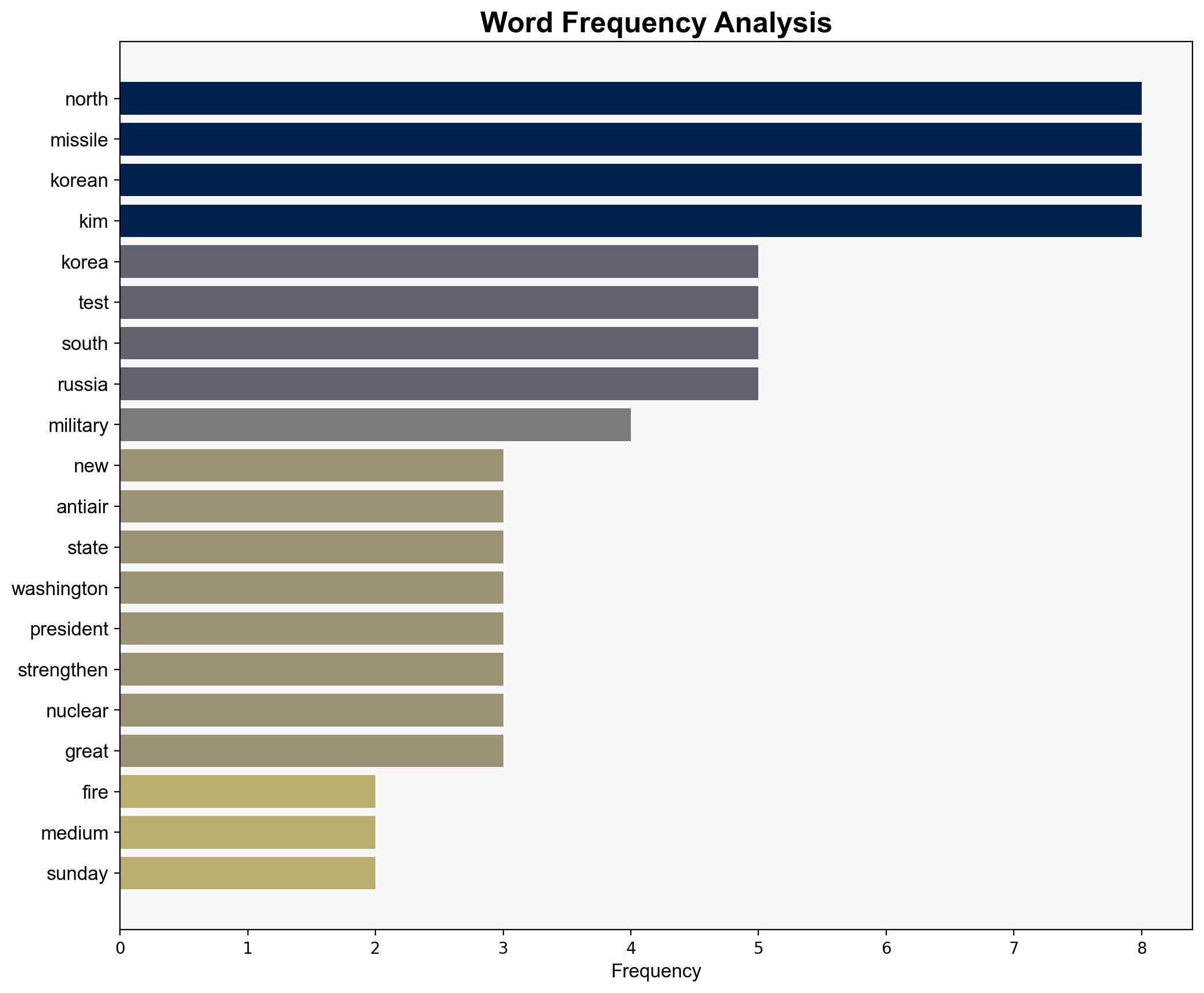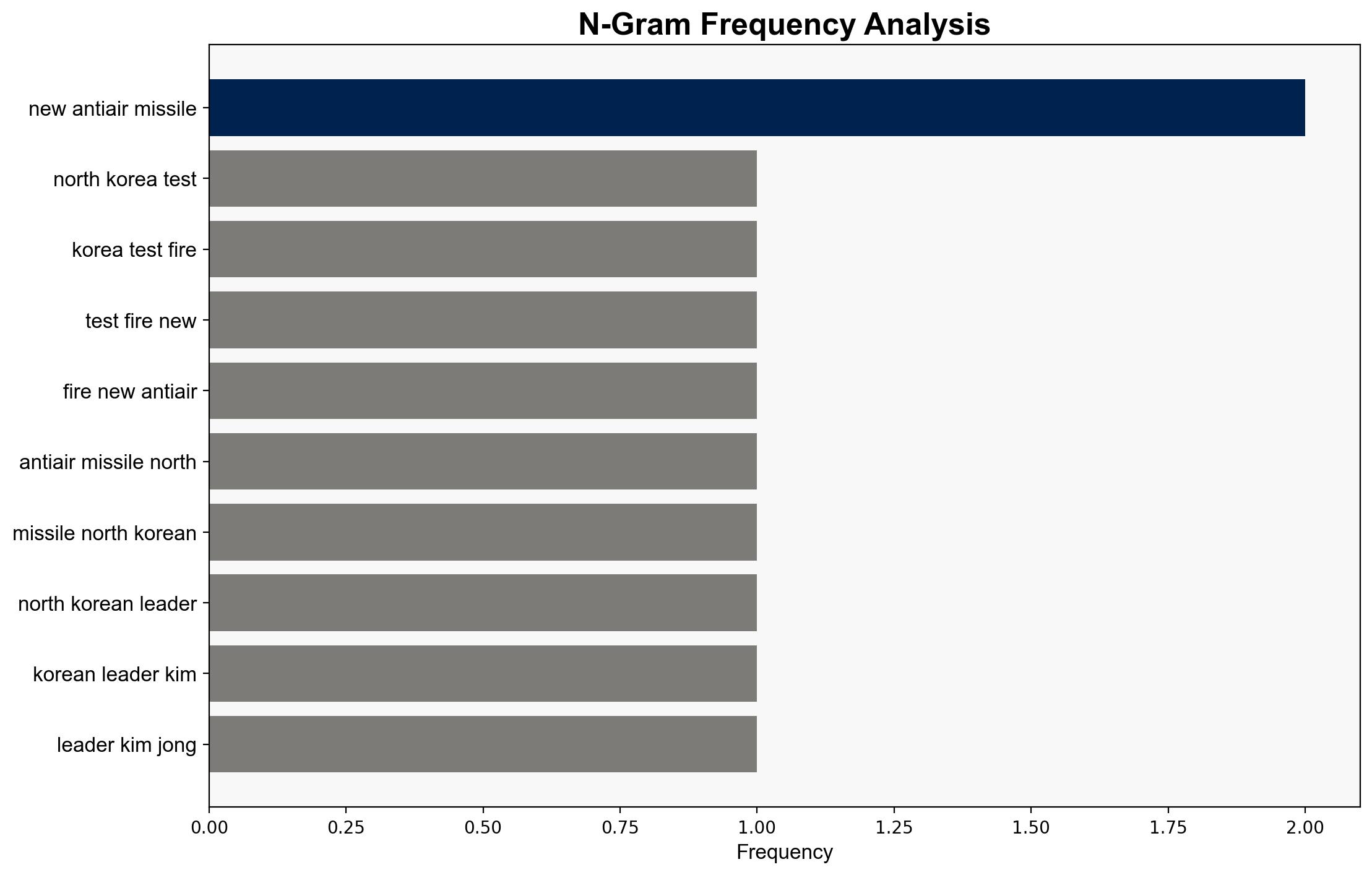North Korea test fires 2 new antiair missiles – CBS News
Published on: 2025-08-24
Intelligence Report: North Korea test fires 2 new antiair missiles – CBS News
1. BLUF (Bottom Line Up Front)
North Korea’s recent missile test is likely a strategic maneuver to enhance its military capabilities and assert its geopolitical stance amidst regional tensions. The most supported hypothesis suggests this is a demonstration of strength aimed at deterring perceived threats from South Korea and its allies. Confidence level: Moderate. Recommended action: Increase intelligence monitoring and diplomatic engagement to mitigate potential escalation.
2. Competing Hypotheses
1. **Hypothesis 1**: The missile test is primarily a defensive measure to counter aerial threats and improve North Korea’s military technology. This aligns with the narrative of enhancing national defense capabilities against perceived external threats, particularly from South Korea and the United States.
2. **Hypothesis 2**: The test is a strategic signal to international actors, particularly the United States and South Korea, to demonstrate military prowess and leverage in ongoing geopolitical negotiations. This aligns with North Korea’s pattern of using military demonstrations to influence diplomatic engagements.
Using ACH 2.0, Hypothesis 2 is better supported as it aligns with North Korea’s historical use of military tests to gain diplomatic leverage and the timing coincides with significant political events involving South Korea and Japan.
3. Key Assumptions and Red Flags
– **Assumptions**: It is assumed that North Korea’s missile technology is advancing and that the tests are a direct response to regional military activities. There is also an assumption that the missile tests are not merely routine but are strategically timed.
– **Red Flags**: The lack of specific details about the missile capabilities and the absence of independent verification raise questions about the actual effectiveness of the tests. The potential exaggeration of capabilities for psychological impact is a concern.
4. Implications and Strategic Risks
The missile tests could escalate regional tensions, prompting an arms race or increased military readiness among neighboring countries. There is a risk of miscalculation leading to unintended conflict. The tests may also impact diplomatic efforts to address North Korea’s nuclear ambitions, potentially stalling negotiations.
5. Recommendations and Outlook
- Enhance intelligence sharing and coordination with regional allies to monitor North Korea’s military activities.
- Engage in diplomatic efforts to de-escalate tensions and encourage dialogue on denuclearization.
- Scenario-based projections:
- Best: Diplomatic engagement leads to renewed negotiations and de-escalation.
- Worst: Increased military posturing leads to a regional arms race and heightened conflict risk.
- Most Likely: Continued missile tests and military demonstrations without significant diplomatic progress.
6. Key Individuals and Entities
– Kim Jong Un
– Lee Jae Myung
– Shigeru Ishiba
– Vladimir Putin
7. Thematic Tags
national security threats, regional focus, military escalation, diplomatic strategy




